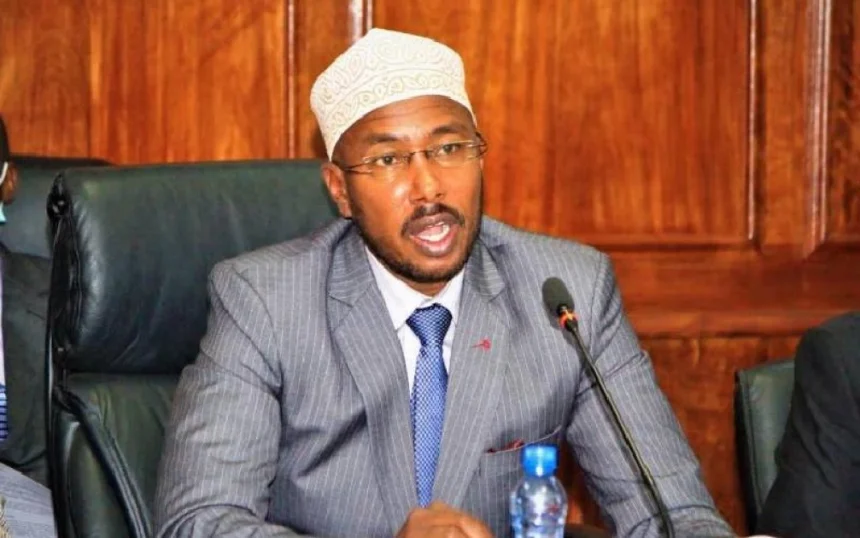After being the caretaker of Kenya’s electoral commission – Independent Electoral and Boundaries Commission (IEBC) – for nearly four years, Hussein Marjan officially took the reigns of the commission just months before the August 2022 General Election.
He vowed to be a stalwart proponent of having credible elections owing to what he termed as a trusted team of commissioners led by now-retired IEBC chairperson Wafula Chebukati.
The six commissioners – two currently retired and four ousted – alongside Chebukati made Marjan’s rule a ride down the waterslide since he was assured of a seamless running of operations.
His sound rule was however short-lived as the commissioners failed to read from the same page on the 2022 presidential results, rocking the commission’s boat.
The famous ‘Cherera four’ comprising Vice Chairperson Juliana Cherera, Commissioners Francis Wanderi, Irene Masit and Justus Nyang’aya disputed President William Ruto’s victory, sending the nation in disarray.
Chebukati, Abdi Guliye and Boya Molu supported Ruto’s victory while Marjan remained tight-lipped, seemingly careful to not reveal his limbo.
On January 16, 2023, Marjan was left a loner after Chebukati and team exited, leaving him with a powerless commission that can not conduct electoral exercises.
He has since pioneered an impotent IEBC with the absence of commissioners leaving him with limited powers.
Marjan, with a professional background in accounting, heads the IEBC Secretariat which according to the IEBC Act is mandated with executing decisions of the Commission and supervises all employees of the Commission.
Section 10 (7) of the Act added that the CEO is also mandated with facilitating and ensuring the execution of the Commission’s mandate, ensuring staff compliance with public ethics, and undertaking any duties as may be assigned by the law and Commission.
With no Commission in the electoral body, Marjan can only undertake specific tasks and cannot oversee IEBC’s most critical task of conducting and regulating electoral processes.
The Act dictates that the Commission is responsible for registering voters, delimiting constituencies and wards in accordance with the Constitution, regulating and settling electoral disputes, and conducting voter education.
Marjan will hold office until 2026 (five years) and shall be eligible for re-appointment for one further term.
Ruth Kulundu is the Secretariat’s Deputy CEO who survived an interdiction moved by IEBC after Marjan accused her of misconduct for arranging an illegal commission plenary meeting without approval.
The Employment and Labour Relations Court (ELRC) suspended IEBC’s decision on January 2023 and ordered her reinstatement.
The Commissioners debacle
Pressure mounted after the 2022 General Elections as opposition leader Raila Odinga accused Ruto of attempting to constitute an electoral commission that will favour his re-election bid in 2027.
This was after Ruto was expected to appoint a Selection Panel to recruit new IEBC commissioners, which was disputed and dissolved.
A National Dialogue Committee (NADCO) constituting representatives from the opposition and the government was then formed to iron out contentious matters on the reconstitution of IEBC.
President Ruto later signed into law the IEBC Amendment Bill 2024 which aims to establish the country’s electoral management system.
The appointment of a selection panel has however hit a snag after a new case challenging the ruling of the Political Parties Disputes Tribunal was filed in court.
Leaders have called for the quick establishment of IEBC, emphasizing the importance of timely by-elections and a transparent process for resolving unresolved electoral disputes.
Apart from the top bosses, IEBC currently has 10 directors, 24 managers, 47 county election managers and 290 constituency election coordinators.



